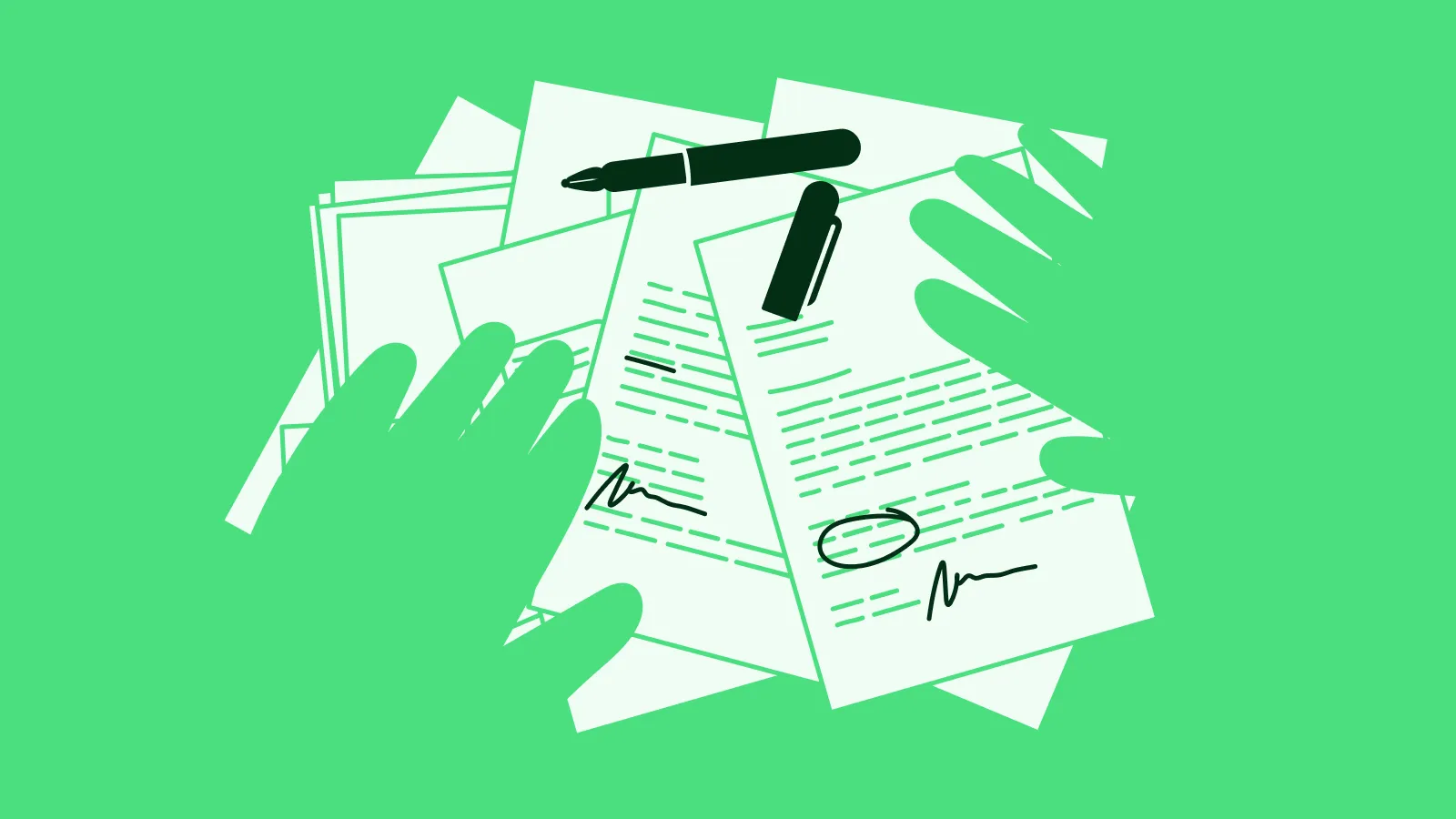Right to Acquire Mortgages
Thinking of buying your housing association home? The Right to Acquire scheme could be the route to homeownership you've been looking for.
Your home may be repossessed if you do not keep up repayments on your mortgage.
Exclusive broker partner to

Author: Michael Whitehead, Head of Content
Reviewer: Paul Coss, Haysto Co-Founder and Chief Customer Officer
Updated: Sep 02 2025 7 mins
If you’ve rented your home from a housing association for several years, you might have an opportunity to become a homeowner sooner than you think. Right to Acquire is a government scheme that allows you to buy the home you already live in, with a healthy discount that could cover your mortgage deposit.
In this guide, we’ll explain what the scheme is, who qualifies, and how to get the mortgage you need to make it happen.
What Is the Right to Acquire Scheme?
If you’re a housing association tenant in England, the Right to Acquire scheme offers you an opportunity to buy your home with a discount. It’s a great option if you’ve been renting for a while and want to lay down more permanent roots. Rather than paying rent, you’ll be making mortgage repayments whilst building equity in a home that you’ll eventually own outright.
The scheme applies to housing association properties built or bought with public funds, or transferred from a local council after 1st April 1997. It’s important to note that the Right to Acquire scheme is different from Right to Buy, which is specifically for council tenants. While both schemes share a similar goal, they have different rules regarding the available discounts and eligibility requirements.
How Much Is the Right to Acquire Discount?
This can vary depending on your location. Unlike Right to Buy, which is a percentage of the property’s value (and subject to regional caps), the Right to Acquire discount is a set figure that typically ranges from £9,000 to £16,000 and is determined by your landlord.
These fixed discounts can be a significant help, especially for tenants in areas where house prices are lower, and they can often be used to cover the full deposit a mortgage lender would require to complete the purchase. So, depending on your circumstances, you may not need to save any money for a deposit at all.
How Do You Qualify for the Scheme?
To be eligible for the Right to Acquire scheme, you'll need to meet a few key criteria. It's a great opportunity for homeownership, but it's not available to everyone. You’ll typically qualify if:
You’ve been a housing association tenant with a public sector landlord (this can also include councils, armed forces, NHS Trusts and foundation Trusts) for a minimum of three years. These don't have to be continuous, so you can still qualify if you’ve had breaks in your tenancy.
Your home is a self-contained property and is your main residence.
The property was built or bought by your housing association using public funds, or transferred from a local council after 1st April 1997.
You don't have any serious legal issues with your tenancy, nor have you received a court order to leave your home.
Your landlord must be registered with the social housing regulator.
If you meet all the eligibility criteria, you’re in a great position. But to secure a mortgage to complete the purchase, you’ll still need to pass a lender’s affordability checks, just like any other buyer.
Do You Need a Deposit for a Right to Acquire Mortgage?
In many cases, you may not need a cash deposit at all. One of the biggest benefits of both the Right to Acquire and Right to Buy schemes is that the discount you receive can often be used as your deposit.
For example, if you live in a region with a £12,000 Right to Acquire discount and your home is valued at £150,000, this would count as an 8% deposit. Most lenders will currently accept a minimum deposit of 5%, so your discount alone would cover this requirement in this instance.
It's worth noting that you may need a higher deposit than your discount, depending on the size of the discount compared to the property value, the strength of your overall mortgage application, and the specific lender’s eligibility criteria you’re applying with.
How Much Can You Borrow?
Lenders treat Right to Acquire mortgages the same way they do any other standard residential mortgage and will assess your income, outgoings, and credit history to decide how much they’re willing to lend you.
As a general rule, most lenders will consider offering a mortgage of between 4 and 4.5 times your gross annual income (before any deductions). If you're applying with a partner, or family member, your combined incomes can be used in the calculation, which will increase your borrowing power.
To see how this might work out for you, based on your annual income, take a look at our quick and easy-to-use mortgage affordability calculator.
Potential property value:
Your deposit:
You could borrow:
Based on x your income at £, plus your deposit of £.
Speak with one of our experts today to learn more about your options.
Get Started NowThis calculator provides an estimate of how much you may be able to borrow for a mortgage based on the information you have entered. The figures are for illustrative purposes only; the actual amount you can borrow may differ, and this does not constitute either a mortgage offer or a mortgage in principle (MIP).
Your home may be repossessed if you do not keep up repayments on your mortgage.
You can also use our mortgage repayment calculator below to see what the amount you're looking to borrow could cost you each month and check if this fits with your budget.
Mortgage Type
With a repayment mortgage you repay all the capital and interest during the term. For interest-only, you only repay the interest amount each month and the capital is repaid in full at the end of the term.Net monthly rental income
Monthly mortgage repayment
Loan-to-value (LTV)
Interest cover ratio (ICR)
Indicates how much rental income covers mortgage repayments. Lenders typically look for an ICR of between 125%-145%.
Rental yield
Indicates the annual return on investment from the rental income expressed as a percentage of the property value.
Speak with one of our experts today to learn more about your options.
Get Started NowThis calculator provides an estimate of your monthly mortgage repayments based on the information you have entered. The figures are for illustrative purposes only, your actual payments may differ, and this does not constitute a mortgage offer.
Your home may be repossessed if you do not keep up repayments on your mortgage.
Right to Acquire vs Right to Buy
While both schemes aim to help tenants buy their homes, there are some key differences to be mindful of. We've put together a handy table to help you easily see the distinctions and know which scheme you're most likely to qualify for.
Feature | Right to Acquire | Right to Buy |
|---|---|---|
Who’s it for? | Housing association tenants with public sector landlords (including councils, armed forces, NHS Trusts and Foundation Trusts) | Secure council tenants (and some housing association tenants who transferred from a local authority) |
Discount Type | A fixed amount, based on your location | A percentage of the property value, with a maximum regional cap |
Discount Amount | £9,000 to £16,000 (depending on location) | Between 35% and 70% of the property’s value, up to a regional cap. |
Eligible Properties | Housing association homes built/bought with public funding after 1997 | Council homes and some housing association homes that were previously council-owned |
Key Recent Changes | No major changes. Fixed discounts remain in place. | The Labour government changed the rules in late 2024, altering the discount structure to a percentage based on tenancy length, and the caps have changed over time. |
How to Apply for a Right to Acquire Mortgage
The process consists of two distinct parts: the application to your housing association and the mortgage application itself. Here's a simple, step-by-step guide to keep you on the right track:
Contact your housing association. The first step is to formally apply to your housing association or other public sector landlord using the RTA1 form. Once they've received it, they'll check your eligibility and let you know if you can proceed (usually within four weeks).
Get a formal offer. If you qualify, your landlord will send you a formal offer letter within eight weeks of agreeing to sell. This letter will outline the price of the property, the discount you're entitled to, and all the terms of the purchase. You have 12 weeks from the date of receiving this offer to apply for your mortgage. (You can pull out of the sale at any time within this period and continue to rent).
Speak to a mortgage broker. This is where we can help! Once you have your offer letter in hand, our mortgage team can guide you through the application process, helping you find the most suitable lender (one with experience of the scheme) and the most competitive rates.
Apply for your mortgage. Once you've chosen a lender and a mortgage deal that works for you, our team will help you get your paperwork in order and submit your mortgage application.
Finalise the purchase. Once your mortgage offer is in place, your conveyancer will handle all the legal work to complete the sale and make your home truly your own.
Why Pick Picnic?
With access to thousands of mortgage products, easy-to-use technology, and 100+ experts, our award-winning service is with you every step of the way.
Your home may be repossessed if you do not keep up repayments on your mortgage.
Is a Right to Acquire Mortgage a Good Idea?
The Right to Acquire scheme is a brilliant option for many, but it's worth weighing up both the benefits and drawbacks before making a final decision.
Why It’s Great:
The Discount. The most obvious benefit is the upfront discount you receive, which can make homeownership much more affordable.
No Deposit Needed. In most cases, the discount can be used to cover the full deposit a lender would require.
Stay in your Home. You can stay in the home you love without having to move.
Build Your Own Equity. Every mortgage repayment you make helps you build up equity in a property you own, rather than paying rent to a landlord.
What to Think About:
No More Landlord. You become responsible for all repairs and maintenance costs, rather than the housing association.
Resale restrictions. You may have to pay back some or all of the discount if you sell the property within five years of the purchase.
Service charges. You may be responsible for service charges, particularly if you're in a block of flats with communal areas.
Can You Sell a Property After Using the Scheme?
Yes, but within the first ten years of ownership, you’ll have to offer your old landlord first refusal to buy the property back. They have eight weeks to agree a price with you. If they decline, or you can’t agree on a price, you’re then free to sell the property on the open market.
If you want to sell the property within the first five years of ownership, you’ll have to repay a percentage of the original discount you received. The actual amount depends on how long you’ve owned the property and its value at that point. After five years, you won't have to repay the discount, and after 10 years, the Right of First Refusal no longer applies.
Start Your Homeownership Journey with Picnic
The Right to Acquire scheme offers a fantastic opportunity for housing association tenants to make the jump from renting to owning, often without the need for a substantial cash deposit.
If you’re ready to turn your rental property into a home of your own, get in touch with our team today. We’ll help you navigate the application process, find the right lender, and make your mortgage journey feel smooth and stress-free.
All you need to do is make an enquiry, and one of our mortgage experts will contact you to get started.
Related Pages
The Picnic Guide To Buying a Home

How Conveyancing Works

How Stamp Duty Works

Choosing Your Mortgage

Speak to One of Our Experts
First or next move, remortgaging or investing - get clear advice from our award-winning experts to help you find the right mortgage.
Your home may be repossessed if you do not keep up repayments on your mortgage.